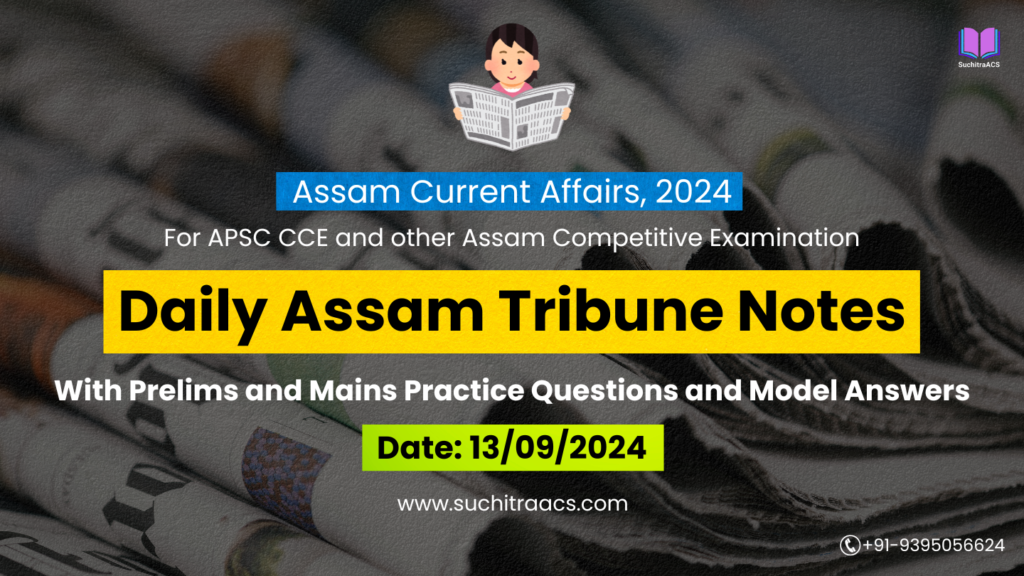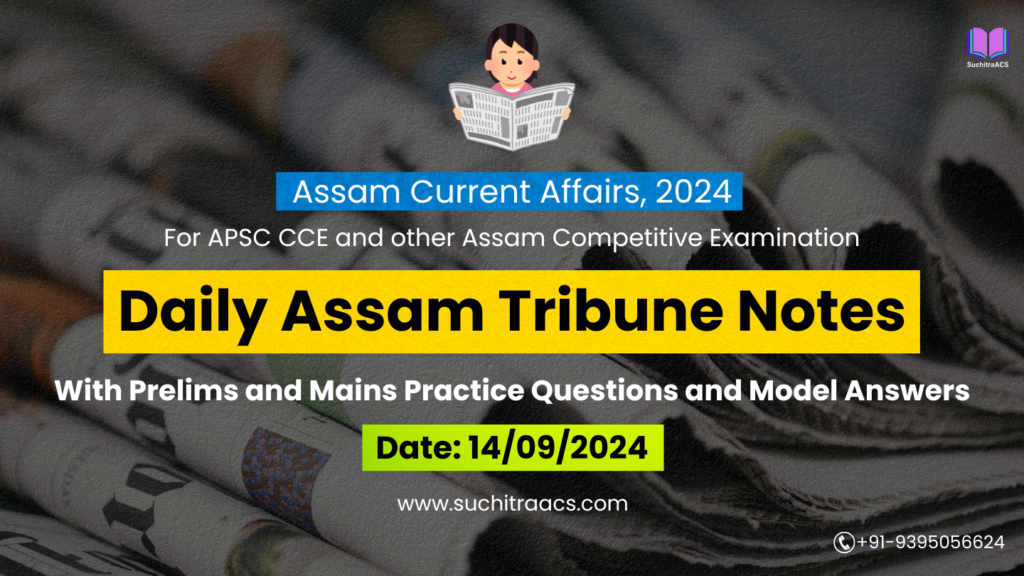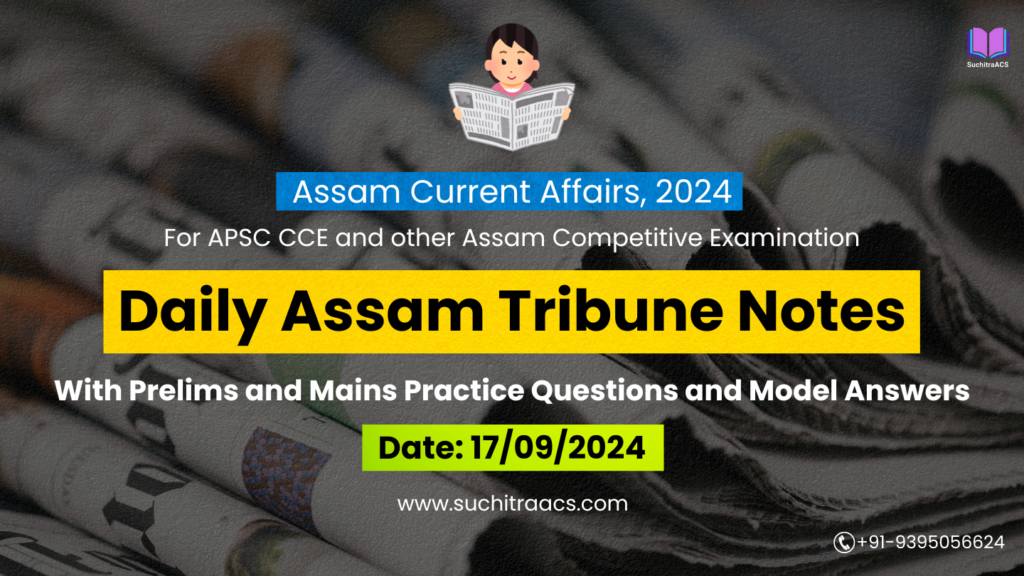1. Security and Disaster Management
- Anti-India Rhetoric & Security Concerns:
- The release of Al Qaeda ideologue Jashimuddin Rahmani from prison in Bangladesh and his subsequent inflammatory statements against India have raised serious security concerns.
- Rahmani’s threats to close the chicken neck corridor, incite unrest in the Northeast, and collaborate with Khalistani separatists highlight the potential for cross-border terrorism and regional instability.
- India’s security agencies are on high alert, increasing vigilance along the international border with Bangladesh to prevent any infiltration or subversive activities.
- The situation underscores the need for continued cooperation between India and Bangladesh in combating terrorism and maintaining regional security.
- India’s Humanitarian Aid & Disaster Management:
- India’s swift response to the devastation caused by Typhoon Yagi in Myanmar, Laos, and Vietnam demonstrates its commitment to humanitarian assistance and disaster relief.
- The provision of relief supplies, including food, medicine, and essential items, and the deployment of the Indian Navy for HADR operations showcase India’s capabilities in responding to natural calamities.
- The operation, named ‘Sadbhav,’ reflects India’s solidarity with the affected people and its role as a responsible regional power.
- The disaster also highlights the importance of international cooperation and preparedness in mitigating the impact of such events.
2. Environment and Biodiversity
- Impact of Typhoon Yagi:
- Typhoon Yagi, the most powerful storm in Asia this year, caused widespread flooding and loss of life in Myanmar, Laos, and Vietnam.
- The disaster underscores the vulnerability of Southeast Asian countries to natural calamities and the need for effective disaster management strategies.
- The environmental consequences of the typhoon, including damage to ecosystems and infrastructure, highlight the importance of sustainable development and climate change adaptation.
- Superstition & Violence:
- The brutal killing of five family members in Chhattisgarh’s Sukma district on suspicion of witchcraft reflects the persistence of superstitious beliefs and their tragic consequences.
- The incident underscores the need for continued efforts to eradicate such practices through education, awareness campaigns, and social reforms.
- It also highlights the importance of promoting scientific temper and rational thinking in society.
- ‘Matri Van’ & Afforestation:
- The inauguration of ‘Matri Van’ at the ICFRE-RFRI in Jorhat is a positive step towards afforestation and environmental conservation.
- The initiative aligns with the ‘Ek Ped Maa Ke Naam’ campaign and emphasizes the importance of planting trees and nurturing them.
- It also highlights the role of research institutions and community participation in promoting environmental awareness and sustainable practices.
3. Governance and Polity
- Political Developments in Delhi:
- Arvind Kejriwal’s resignation as Delhi’s Chief Minister and his call for early polls have created a stir in the political landscape.
- The move has drawn mixed reactions from different political parties, with some criticizing it as a political drama and others hailing it as a bold step.
- The situation underscores the complexities of political maneuvering and the challenges of maintaining public trust in governance.
- The outcome of the early polls, if held, will have significant implications for the political future of Delhi and the Aam Aadmi Party.
- Welfare of Tea Garden Workers:
- The Cachar district administration’s meeting to streamline the payment of bonuses to tea garden workers reflects the government’s commitment to safeguarding the rights and welfare of laborers.
- The discussions on ensuring timely and fair disbursement of bonuses and ex-gratia highlight the importance of social justice and labor rights in the tea industry.
- The involvement of labor organizations and tea associations in the meeting underscores the need for collaborative efforts to address the concerns of workers and promote industrial harmony.
APSC Prelims Practice Questions
1. History, Heritage, Culture, Literature, Tradition & Heritage of Assam
- Question: Which Assamese cultural museum is facing challenges due to lack of government support, as highlighted in the newspaper?
- (A) Srimanta Sankaradeva Kalakshetra
- (B) Assam State Museum
- (C) Purvabharati
- (D) Janapada
2. Geography of Assam
- Question: The article “Kochutoli witnesses mass exodus of families” primarily concerns which geographical region of Assam?
- (A) Barak Valley
- (B) Brahmaputra Valley
- (C) Karbi Anglong
- (D) Bodoland Territorial Region
3. Political and Administrative System of Assam
- Question: The news article “RTI activist highlights anomalies in APDCL schemes in Bongaigaon circle” relates to which aspect of the Assam’s political and administrative system?
- (A) District Administration
- (B) Public Policy
- (C) Citizen Charter
- (D) State Information Commission
4. Economy of Assam
- Question: According to the newspaper, which of the following sectors is experiencing “remarkable growth” in India, with implications for Assam’s economy as well?
- (A) Agriculture
- (B) Audio devices
- (C) Shipbuilding
- (D) Automobile
5. Bio-diversity, Environment, Security and Disaster Management
- Question: The article “India sends aid to typhoon-hit Myanmar, Laos, Vietnam” showcases India’s commitment to which aspect of disaster management?
- (A) Preparedness
- (B) Response
- (C) Recovery
- (D) All of the above
Answer Key:
- C
- B
- D
- B
- D
APSC Mains Practice Question
Question: The article “5 Killed on Suspicion of Witchcraft” highlights the persistence of superstitious beliefs and their tragic consequences. Discuss the social and legal implications of such incidents and suggest measures to eradicate such practices and promote scientific temper in society. (Answer in 250 words)
Model Answer:
The brutal killing of five family members in Chhattisgarh’s Sukma district on suspicion of witchcraft underscores the deep-rooted problem of superstition and its devastating impact on individuals and communities. Such incidents have far-reaching social and legal implications that demand urgent attention.
Social Implications:
- Erosion of Human Rights: The practice of branding individuals as witches and subjecting them to violence and ostracization violates their fundamental human rights to life, dignity, and equality.
- Perpetuation of Gender Inequality: Women are disproportionately targeted in witchcraft accusations, reflecting deeply ingrained gender biases and power imbalances within society.
- Breakdown of Social Fabric: Such incidents create an atmosphere of fear and mistrust within communities, leading to social fragmentation and hindering development efforts.
- Hindrance to Progress: Superstitious beliefs and practices impede the adoption of scientific and rational thinking, hindering progress and development in various spheres of life.
Legal Implications:
- Violation of Law: The killing of individuals on suspicion of witchcraft is a blatant violation of the Indian Penal Code and other relevant laws.
- Failure of Law Enforcement: The occurrence of such incidents raises questions about the effectiveness of law enforcement agencies in preventing and addressing such crimes.
- Need for Legal Reforms: There is a need for stricter implementation of existing laws and the enactment of specific legislation to address the issue of witchcraft-related violence.
Measures to Eradicate Superstitious Practices:
- Education and Awareness: Promoting scientific temper and rational thinking through education and awareness campaigns is crucial in combating superstitious beliefs.
- Empowerment of Women: Empowering women through education, economic opportunities, and social awareness programs can help challenge gender biases and reduce their vulnerability to witchcraft accusations.
- Community Engagement: Engaging with community leaders, religious figures, and influential individuals to promote social harmony and discourage harmful practices.
- Strengthening Law Enforcement: Enhancing the capacity of law enforcement agencies to investigate and prosecute cases of witchcraft-related violence.
- Legal Reforms: Enacting specific legislation to address the issue of witchcraft-related violence and provide protection to vulnerable individuals.
Conclusion:
Eradicating superstitious beliefs and practices requires a multi-pronged approach involving education, awareness, empowerment, community engagement, and legal reforms. By promoting scientific temper and rational thinking, we can create a society that is free from the shackles of superstition and ensures the safety and dignity of all its members.
✨ Looking for top-quality APSC online coaching at an affordable price?

🔔 Join Our WhatsApp Study Group!
For exclusive access to premium quality content, including study materials, current affairs, MCQs, and model answers for APSC CCE and other Assam competitive exams.
Click here to join: SuchitraACS Study WhatsApp Group
📚 Want to know more about SuchitraACS’s most affordable courses?
Click here to know more: SuchitraACS Courses for APSC CCE and Assam Competitive Examinations




